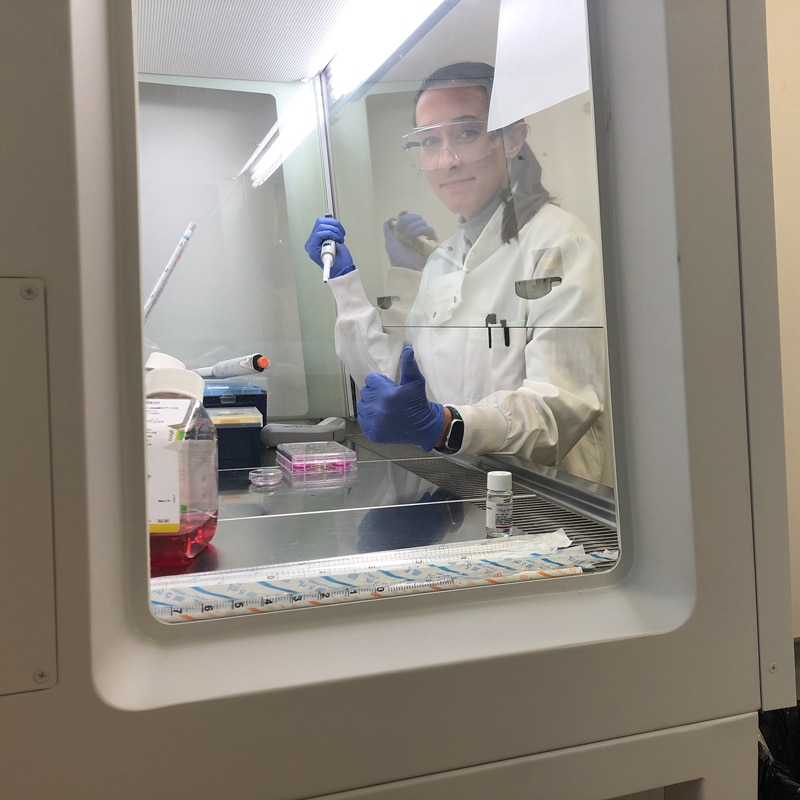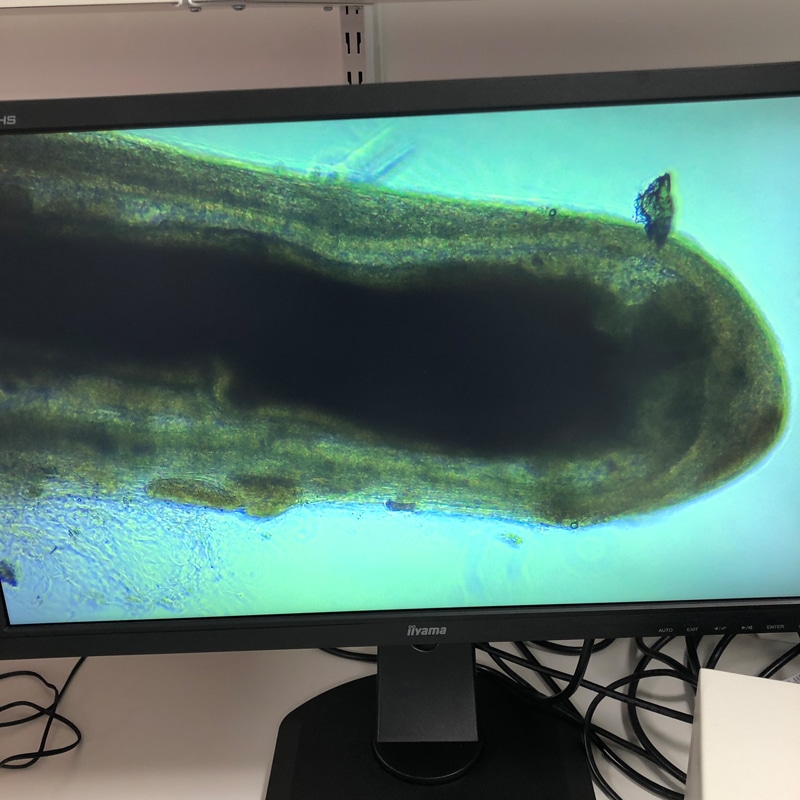Tell us a bit about yourself – what was your PhD about and where did you study?
My PhD was in ‘Molecular Cancer Studies’ at the University of Manchester. I was researching killing hypoxic (low oxygen) regions of small cell lung cancer tumours. I was also interested in the importance of heterogeneity (how much cells differ) within and between tumours.
What do you do now? What did you decide to do next after gaining your PhD?
I started working at a start up biotech company called HairClone in November 2019. Here, I am investigating and optimising treatments for androgenic alopecia (age-related hair thinning) in order to bring new therapies into clinical use. Prior to this, I spent 4 years at the University of Birmingham researching drug repurposing to treat head and neck cancer, for example the anti-malarial drug, quinacrine. I also was involved with clinical trials carried out by the group.
Has having a PhD helped in developing your career? If yes, what has been the biggest impact? If no, why do you think that is?
Yes, I wouldn’t be where I am today without a PhD. I could have worked in research as a lab technician, but I would be unlikely to have my own project and the salary would be considerably less. I have not worked at a pharmaceutical company before, but feel like you may be more able to progress within such a company without a PhD. In academia, you cannot progress to being a lecturer or PI without a PhD.



What’s one piece of advice that you’d offer prospective students considering a PhD?
Talk to current lab members informally to find out how their work life balance is. Many people expect PhD students to work 24/7, but this is not at all necessary and puts you at risk of burning out. Also, find a project that you are very interested in as you will start to become very specialised within this field. This also means that finding a job afterwards isn’t always straight forward.
And what one thing would you suggest that new PhD graduates should do next?
I felt like I should work as a Post-doc to see whether an academic career was right for me and to gain more experience. I also didn’t know my other options. It is worth looking at biotech companies and contacting them directly as they don’t always advertise. It is all about networking. Get in touch with people you have met at conferences etc and ask around to find out about opportunities.
Lastly, what’s your favourite memory from your time as a PhD student?
This is very hard, but travelling to San Diego for the AACR cancer conference was very memorable, as was publishing my first paper.
Want to know more about Jennifer?
Visit her website and follow her on Instagram using the links below:

